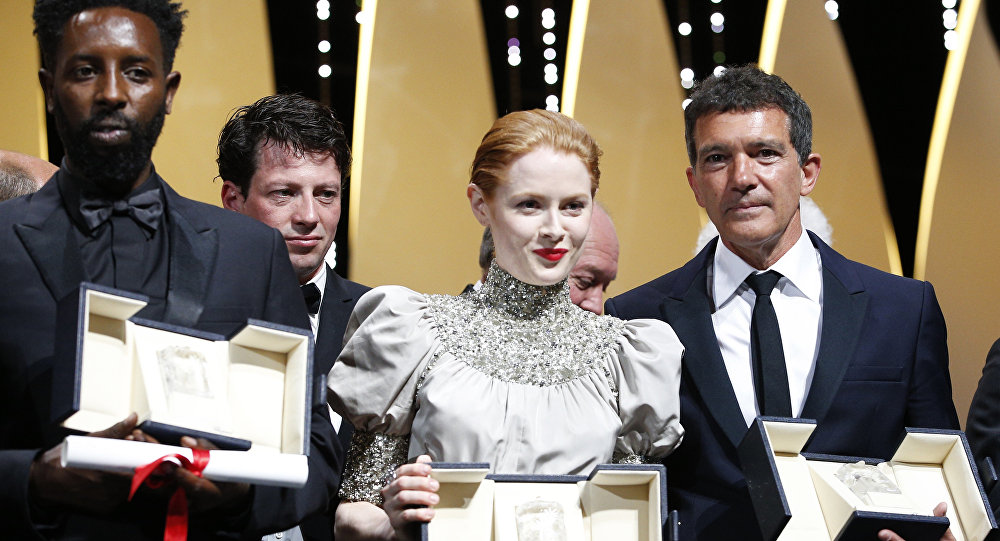The Cannes Film Festival's iconic Palme d'Or for best picture has helped place unknown directors on the global cinema stage, while driving forward the careers of established filmmakers and transforming films into classics. US director Delbert Mann won the first Palme d'Or in 1955 for his romantic drama "Marty." The prize replaced the festival's Grand Prix, which had been awarded each year between 1939 and 1954.
The Grand Prix was reintroduced for 10 years in 1964 before the Palme d'Or returned in 1975.
Since then, some of the world's most famous films have been honoured with the Palme d'Or, among them Martin Scorsese's "Taxi Driver," Francis Ford Coppola's "Apocalypse Now," Andrzej Wajda's "Man of Iron," Steven Soderbergh's "Sex, Lies and Videotape" and Luchino Visconti's "The Leopard."
As one of the most prestigious prizes in the world of cinema, the Palme d'Or tends to be awarded for a filmmaker's body of work, or for a movie opening up new vistas in cinema.
Winning a Palme d'Or might not be a guarantee of box office success. But it can represent a step towards a nomination for another great cinema honour: the Academy Awards in Hollywood, as directors such as Terrence Mallick, Michael Haneke and Jane Campion have discovered.
New Zealand-born Campion occupies a unique place in Cannes history: She is the only female director to win the festival's top prize for her film "The Piano."
Only nine filmmakers are members of another exclusive Cannes club: those who have been awarded the Palme d'Or twice.
Bong Joon Ho became the first South Korean director this year to win Cannes Palme d'Or for his black comedy "Parasite",
This year, 21 films competed for the Palme d'Or, with a nine-member jury led by Oscar-winnng Mexican director Alejandro Gonzalez Inarritu handing out the festival's coveted prizes at Saturday's ceremony.
The Grand Prix was reintroduced for 10 years in 1964 before the Palme d'Or returned in 1975.
Since then, some of the world's most famous films have been honoured with the Palme d'Or, among them Martin Scorsese's "Taxi Driver," Francis Ford Coppola's "Apocalypse Now," Andrzej Wajda's "Man of Iron," Steven Soderbergh's "Sex, Lies and Videotape" and Luchino Visconti's "The Leopard."
As one of the most prestigious prizes in the world of cinema, the Palme d'Or tends to be awarded for a filmmaker's body of work, or for a movie opening up new vistas in cinema.
Winning a Palme d'Or might not be a guarantee of box office success. But it can represent a step towards a nomination for another great cinema honour: the Academy Awards in Hollywood, as directors such as Terrence Mallick, Michael Haneke and Jane Campion have discovered.
New Zealand-born Campion occupies a unique place in Cannes history: She is the only female director to win the festival's top prize for her film "The Piano."
Only nine filmmakers are members of another exclusive Cannes club: those who have been awarded the Palme d'Or twice.
Bong Joon Ho became the first South Korean director this year to win Cannes Palme d'Or for his black comedy "Parasite",
This year, 21 films competed for the Palme d'Or, with a nine-member jury led by Oscar-winnng Mexican director Alejandro Gonzalez Inarritu handing out the festival's coveted prizes at Saturday's ceremony.









 Home
Home Politics
Politics











